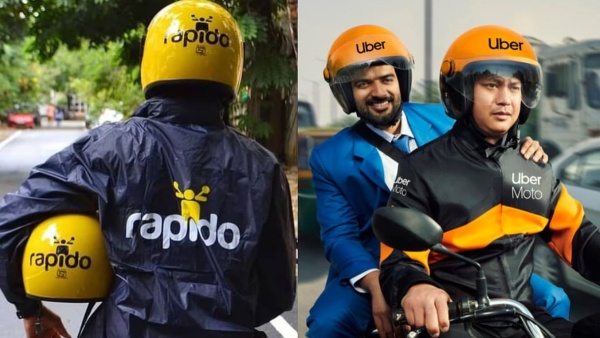The Ministry of Road Transport and Highways (MoRTH) has issued new guidelines allowing states to permit the use of privately registered (non-transport) motorcycles for passenger rides through aggregator platforms such as Rapido, Ola, and Uber.
The guidelines issued on July 1 stated, “The state government may allow aggregation of non-transport motorcycles for journeys by passengers as shared mobility through aggregators, resulting in reduced traffic congestion and vehicular pollution, along with providing, inter alia, affordable passenger mobility, hyperlocal delivery, and creating livelihood opportunities.”
The guidelines also mention that states can charge aggregators a daily, weekly, or fortnightly fee for granting authorisation to operate private motorcycles legally. Additionally, aggregators must ensure that all registered drivers follow legal and safety rules, including having valid driving licenses, insurance, and well-maintained vehicles.
Legal experts say the Centre’s guidelines clearly state the legal framework for permitting operations using private motorcycles, making this a policy lever that now rests entirely with state governments.
“This clause marks a significant shift in regulatory intent. For years, bike taxis have operated in a grey area, with legal uncertainties stalling growth and investment. By formally recognising the possibility of such operations under a state-authorised framework, the Centre has signalled its willingness to regularise the sector,” said Yash Joglekar, counsel, Bombay High Court.
While it’s not an automatic go-ahead, it clearly opens the door for bike taxis—contingent on state-level policy decisions, he added.
The onus now lies on state governments to operationalize this potential. If they act swiftly, this could indeed be a turning point—bringing legitimacy, investor confidence, and improved last-mile mobility across urban India, Joglekar said.
Others added that this could be interpreted as a nod to motorcycle taxi services.
Legal clearance
“This effectively opens the door for bike taxis…That’s a direct nod to bike taxi services, which, until now, have operated in a legal grey zone or faced outright bans in several states,” said Raheel Patel, partner, Gandhi Law Associates.
However, this clause doesn’t mandate states to permit them, but gives them a clear legal footing to do so under Section 67(3) of the Motor Vehicles Act. Combined with the ability to levy fees and enforce compliance, it gives states both revenue and regulatory control—two things they previously lacked, he added.
It could be a major lifeline for the sector, especially in urban areas where affordability, congestion, and last-mile connectivity are most critical, Patel said.
However, for Rapido and other players, the road to operation is contingent upon each state, said Rohit Jain, managing partner, Singhania & Co.
“We welcome the decision to permit the aggregation of non-transport motorcycles for passenger journeys…and are committed to supporting state governments in operationalizing this initiative in line with all stipulated guidelines,” Rapido responded in a prepared statement.
“We welcome the release of the Motor Vehicle Aggregator Guidelines (MVAG) 2025 as a forward-looking step toward fostering innovation and regulatory clarity in India’s digital mobility sector,” said Uber in a statement.
Uber stated that timely adoption of the new guidelines by states will be crucial for ensuring uniform implementation and bringing much-needed clarity and predictability for all stakeholders involved.
The road ahead
Karnataka’s blanket ban on bike taxis, which came into effect on June 16, has brought Rapido’s main operations in the state to a standstill. In contrast, Maharashtra has permitted two-wheeler taxis, but only electric ones.
Bike taxis contribute nearly 50% of Rapido’s overall revenue, while the remaining comes from its auto and cab services. Typically, bike taxi fares range from ₹20 to ₹50 for short trips—about half the cost of auto-rickshaws and much cheaper than cabs. In response to the ban, bike taxi drivers have been staging protests across Karnataka, urging the government to lift the ban and bring in a fair and inclusive policy.
Rapido’s standout feature is its SaaS-based, subscription model for drivers, which differs from the traditional commission-per-ride system. Interestingly, competitors Ola and Uber have also started testing similar models. Ola introduced the SaaS system for autos in April 2024, while Uber implemented it in February this year. According to a media report, Ola has recently expanded its zero-commission model to cover all ride categories.
👉 Click here to read the latest Gujarat news on TheLiveAhmedabad.com




